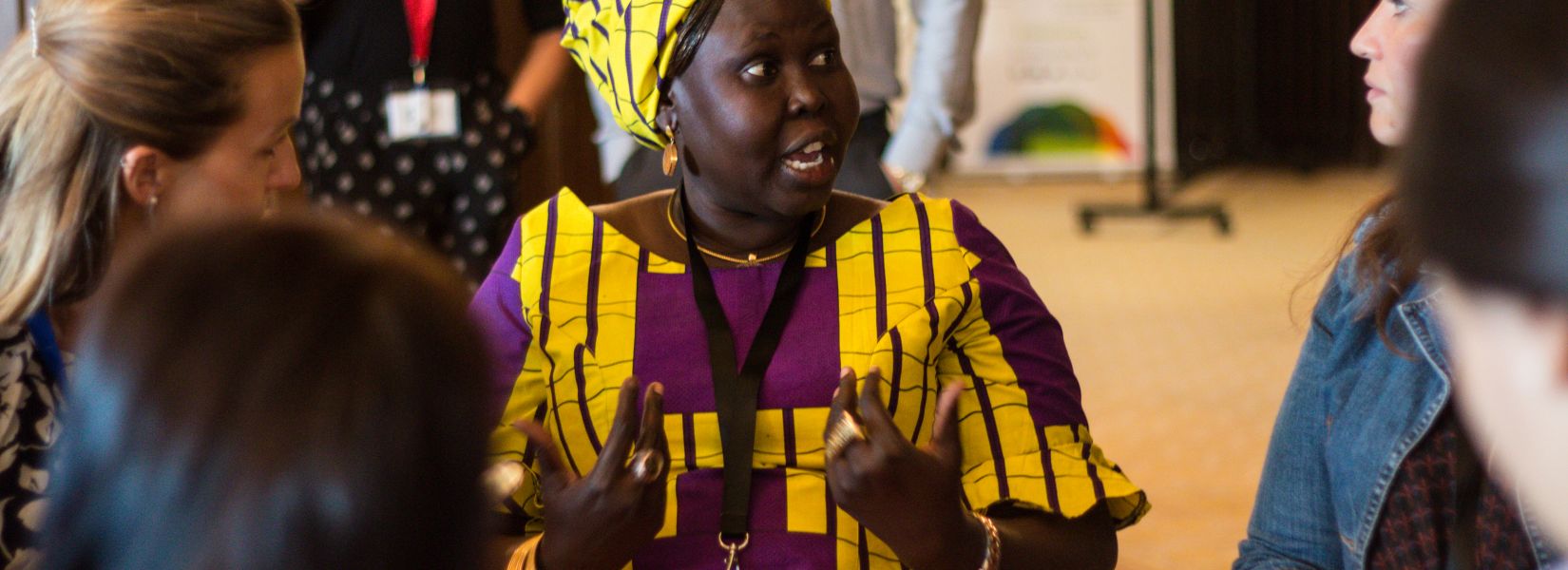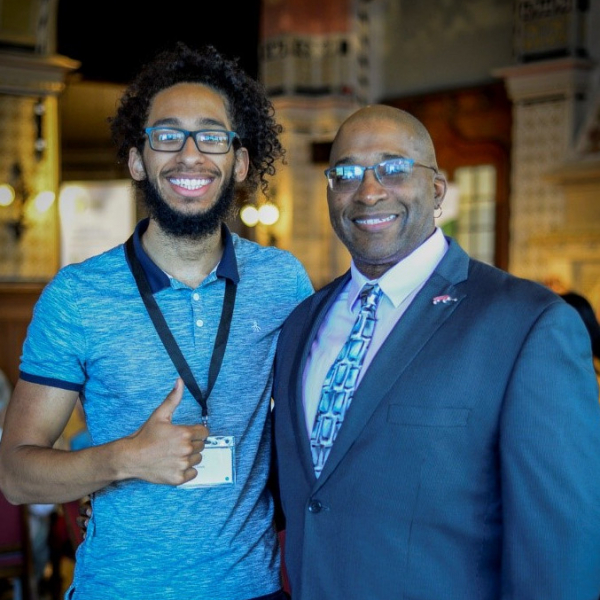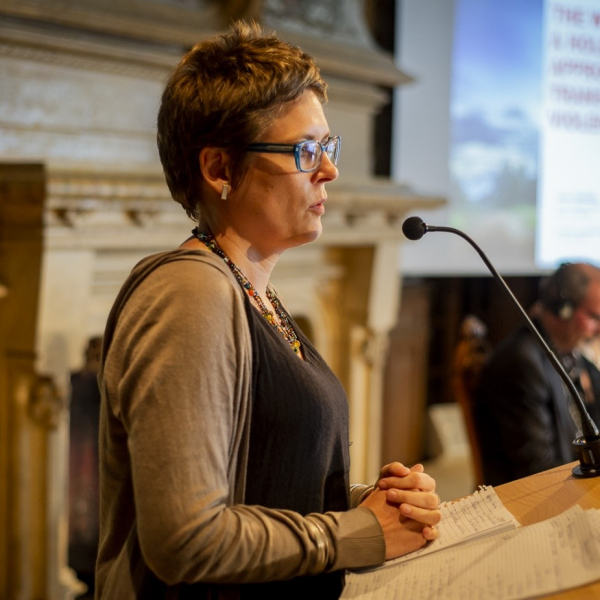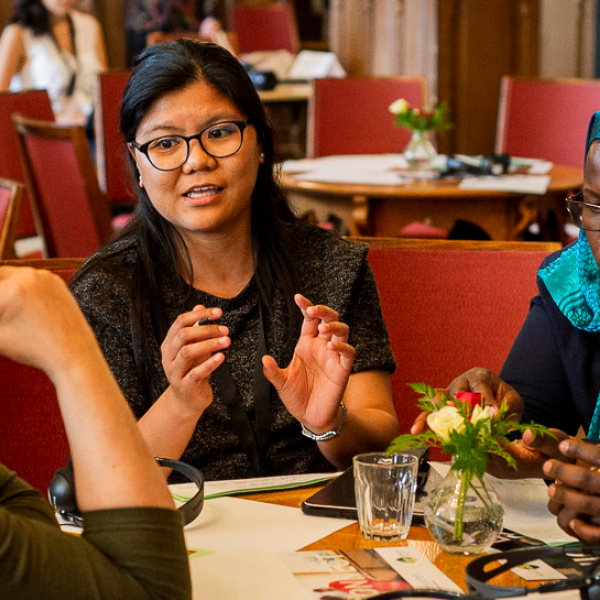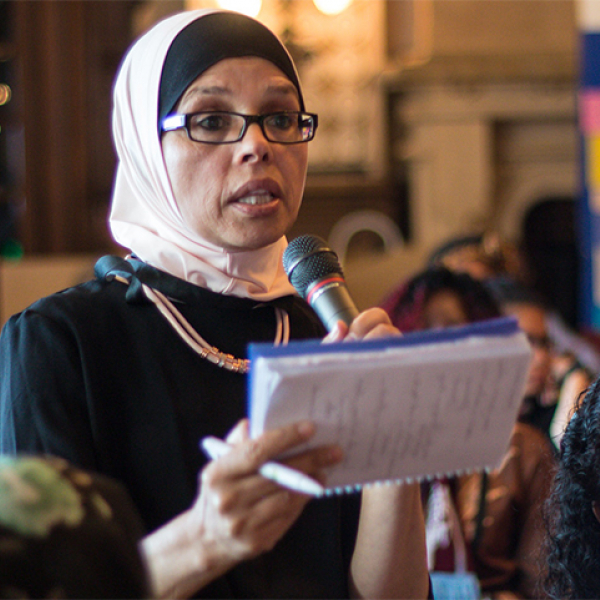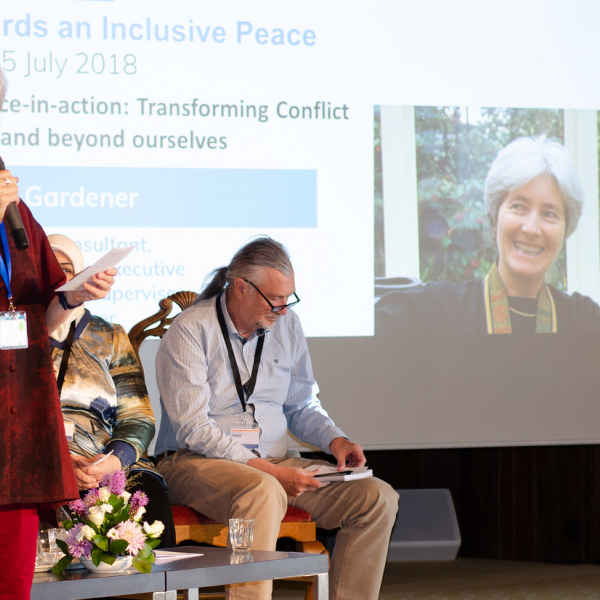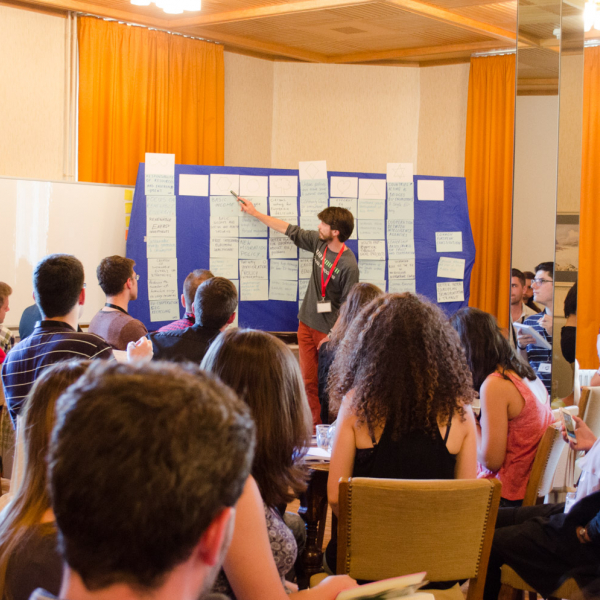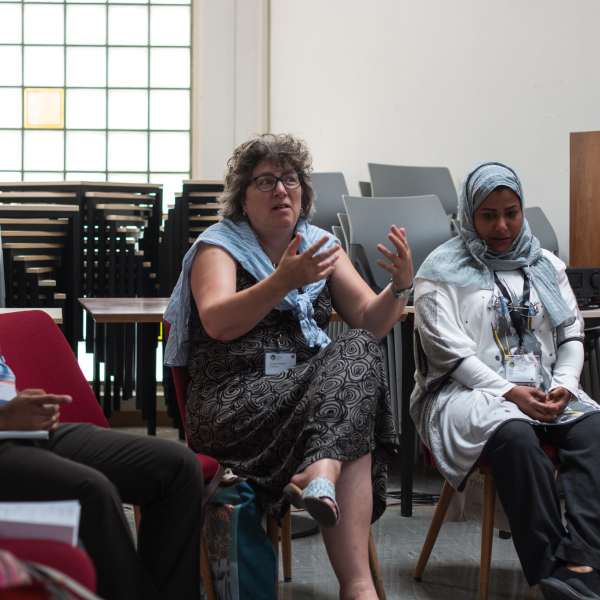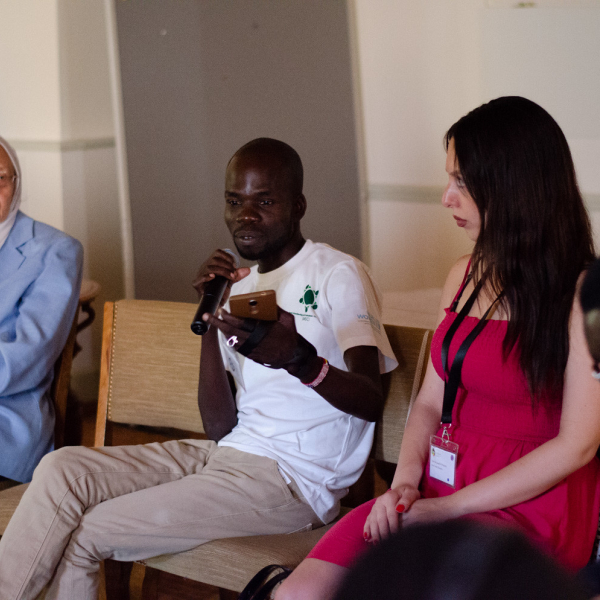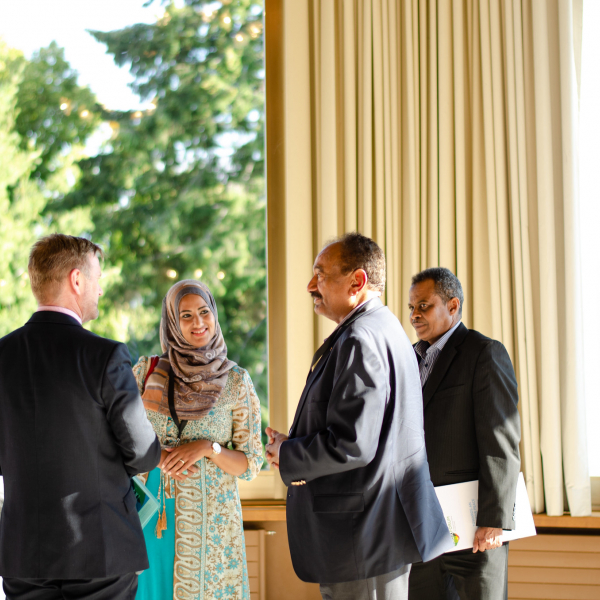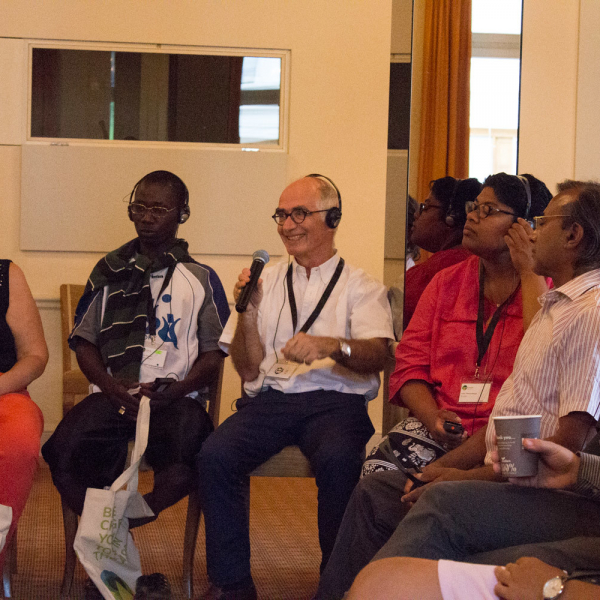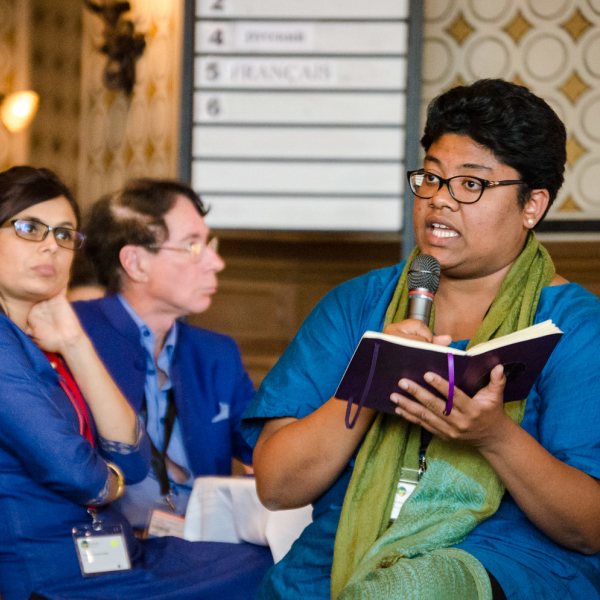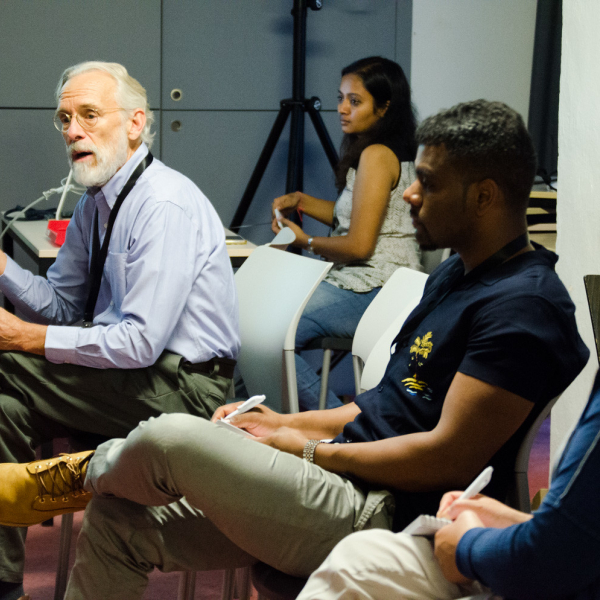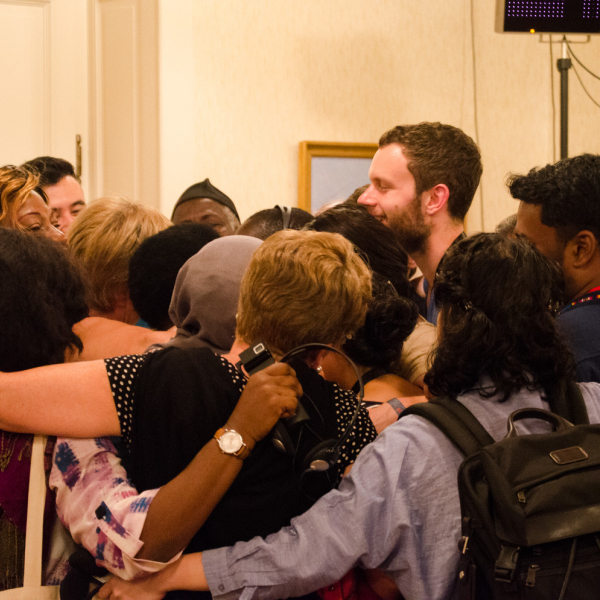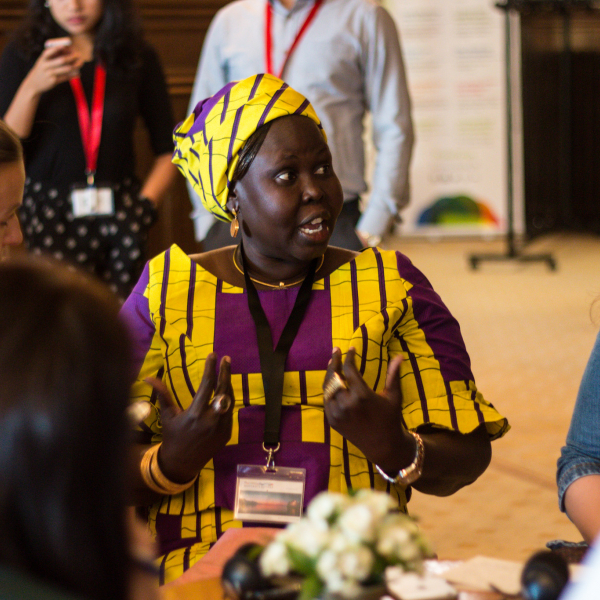Gender Perspectives in peacemaking: Addressing extremism inclusively and holistically
Towards an Inclusive Peace
16/07/2018During a workshop over three days’ time at Towards an Inclusive Peace, Melinda Holmes, senior adviser and program manager with the International Civil Society Action Network (ICAN), taught participants about gender perspectives in peacemaking.
Melinda Holmes opened the session by explaining how much of the existing discourse around extremism has involved approaches such as counter-terrorism (CT) and countering violent extremism (CVE). These perspectives are often more militarized in their approach and fail to take into account topics such as gender and youth involvement in solutions to addressing violent extremism. If preventing and transforming violent extremism is our goal, we must include gender in our approach to involve both men and women in the affected communities.
Next, the group delved into the different roles men and women play in conflict situations and the unique ways extremism affects men and women in their communities. For example, women who lack agency due to social structures can become more vulnerable to violence. Women may also radicalize men through a process called “domestic radicalization” in societies which are either matriarchal or patriarchal in structure. Violent extremism can also take hold when marginalization and stereotypes of extremists are present, or the belief that particular groups are de-facto extremist in nature. By reforming security sector approaches and working with the cooperation of groups like the National Counterterrorism Center, we can develop ways to address violent extremism which are more inclusive and holistic and which take into account gender perspectives.
This workshop also examined the role of toxic masculinity, gender norms, non-binary identities, and intersectionality in creating inclusive societies and changing patriarchal systems. One way to help create equity is by forming feminist groups and support systems which can challenge patriarchy by generating awareness of equity issues and sharing lessons learned from the field. By working together to share our knowledge, skills, and experiences, we can create communities which are inclusive to all, regardless of where they fall on the gender spectrum.
By Shannon McClain, with assistance from Caux Scholars Program
